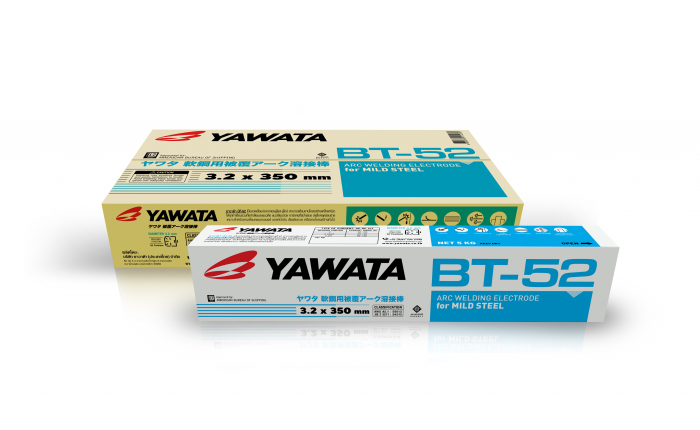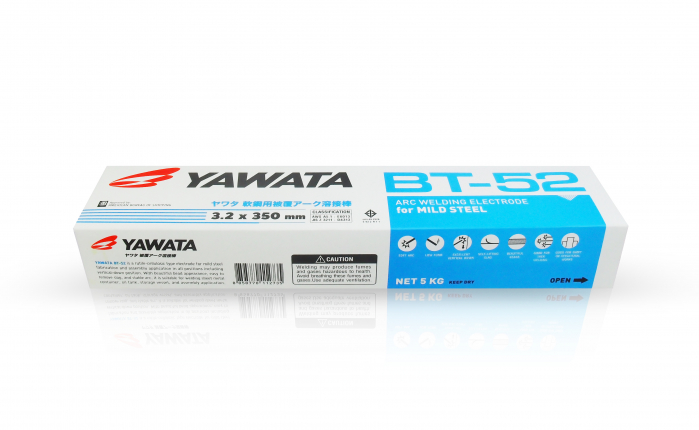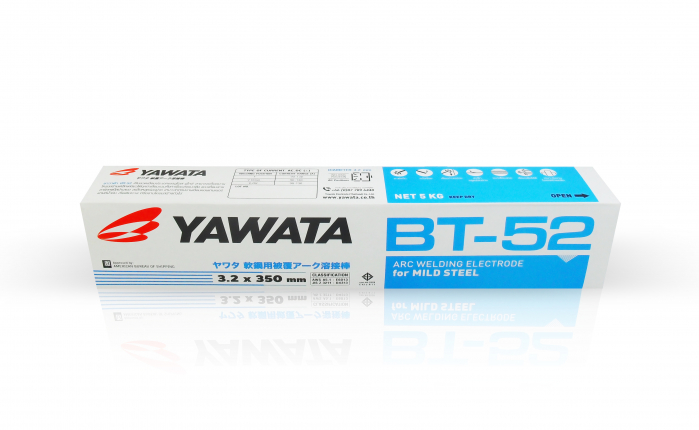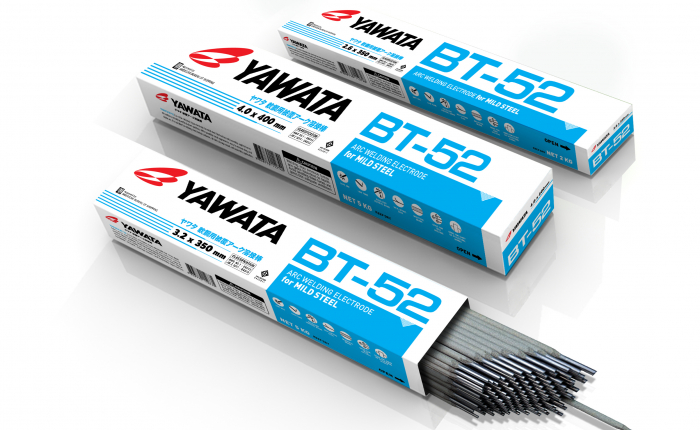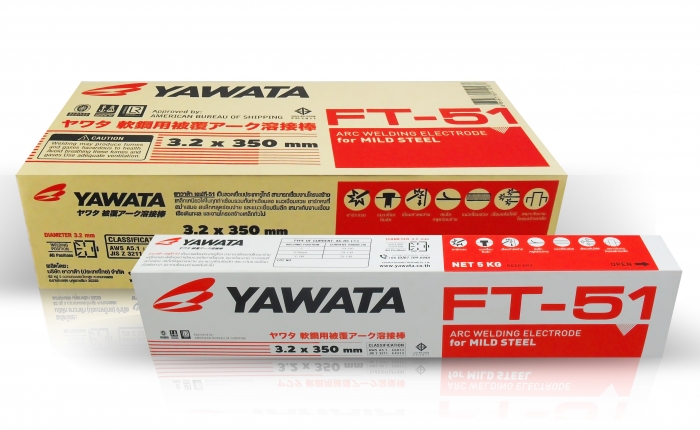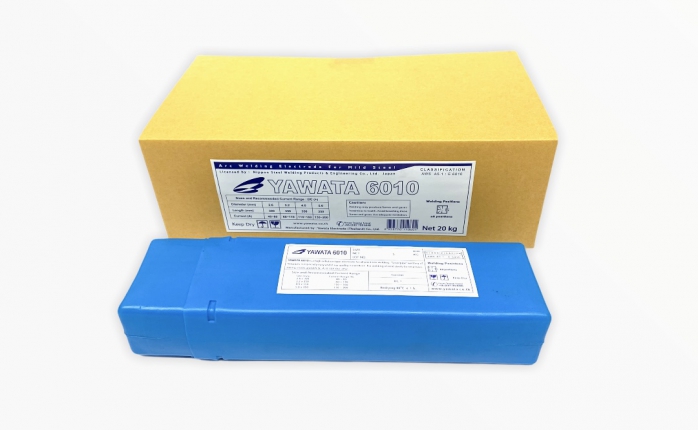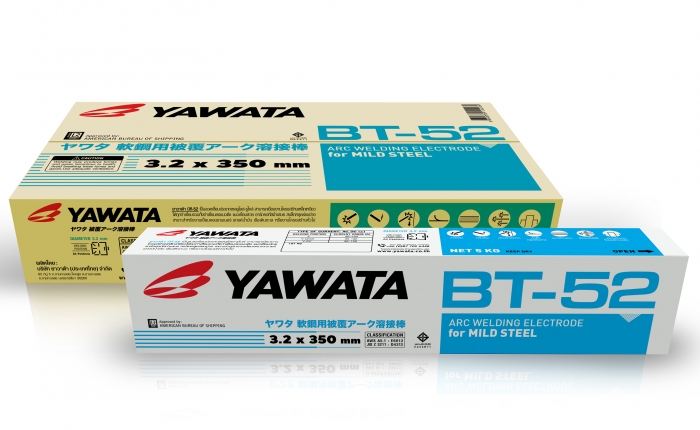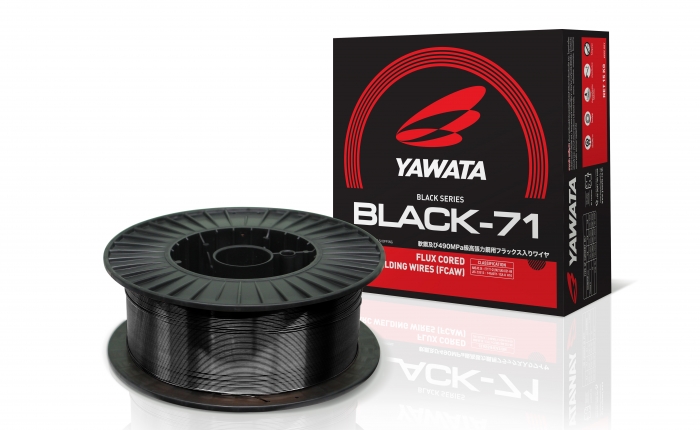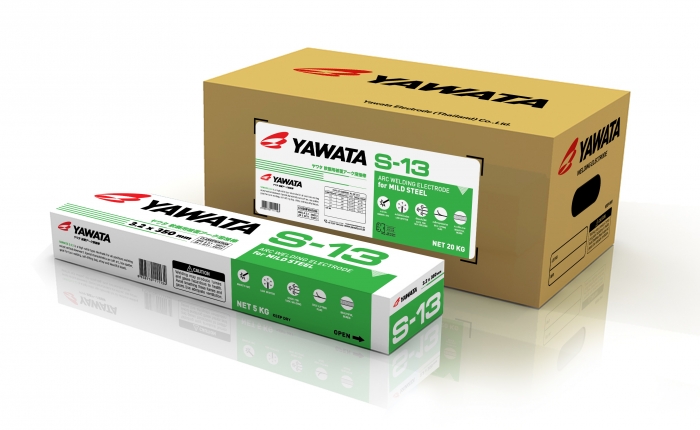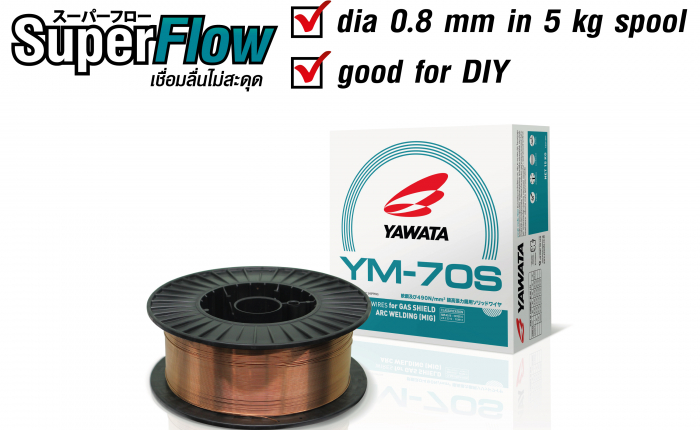Products
YAWATA BT-52 (For Mild Steel)
Classification : AWS A 5.1 : E6013,  JIS Z 3211 : E4313
Approvals : ABS, BV, DNV, LR, TIS
Applications : Welding of mild steel sheet for ships, rolling-stocks, structures, and finished welding of heavy structural works.
YAWATA BT-52 is a rutile-cellulosic type electrode for a wide variety of mild steel fabrication and assembly application. Ideally suited for welding in the vertical-downward position where it produces slightly concave welds merging smoothly into the base metal without any undercutting. Due to its excellent all positions operability and weld pool control, it is preferably used for welding sheet metal containers, storage vessels, and oil tanks. In assembly work, it is possible to apply the same current setting in all positions. The slag comes off very easily as in most cases self-releasing. Welding bead appearance is smooth with fine ripple formation. Also use with welding transformers having a low O.C.V. (42V).
AWS A 5.1 : E6013
JIS Z 3211 : E4313
 
JIS Z 3211 : E4313
 
|   |
C
|
Si
|
Mn
|
P
|
S
|
Cr
|
Mo
|
Ni
|
V
|
C.L.
|
|
Req.    
|
‚ȧ0.20
|
‚ȧ1.00
|
‚ȧ1.20
|
N.S.
|
N.S.
|
‚ȧ0.20
|
‚ȧ0.30
|
‚ȧ0.30
|
‚ȧ0.08
|
N.S.
|
|
Typ.    
|
0.08
|
0.33
|
0.40
|
0.010
|
0.010
|
0.06
|
0.01
|
0.06
|
0.03
|
0.55
|
Typ. = Typical results
N.S. = Not Specified
C.L. = Combined Limit for Mn + Ni + Cr + Mo + V
 
|   | Tensile Strength N/mm2 (kgf/mm2) |
Yield Strength N/mm2 (kgf/mm2) |
Elongation % |
Charpy 2V-notch at 0ŗĻźC, J (kgf.m) |
| Req.¬† ¬†¬† | ‚Č•430 (42) | ‚Č•430 (42) | ‚Č•17 | N.S. (AWS A5.1) ‚Č•47 (ISO 2560-A) |
| Typ.     | 498  | 450 | 25 | 66 (6.7) |
| Diameter /Length (mm) |
2.6/350 | 3.2/350 | 4.0/400 | 5.0/400 |
| Welding Position | Current (A) | |||
| All | 60-85 | 90-130 | 140-180 | 180-240 |
1. Use dry electrodes only.
2. If coating flux absorbs excessive moisture, arc and slag fluidity become unstable, spatters¬†increase, undercuts and blowholes are apt to occur. Damp electrodes should be redried¬†at 70ÔĹě120‚ĄÉ for 60 minutes.
2. If coating flux absorbs excessive moisture, arc and slag fluidity become unstable, spatters¬†increase, undercuts and blowholes are apt to occur. Damp electrodes should be redried¬†at 70ÔĹě120‚ĄÉ for 60 minutes.


